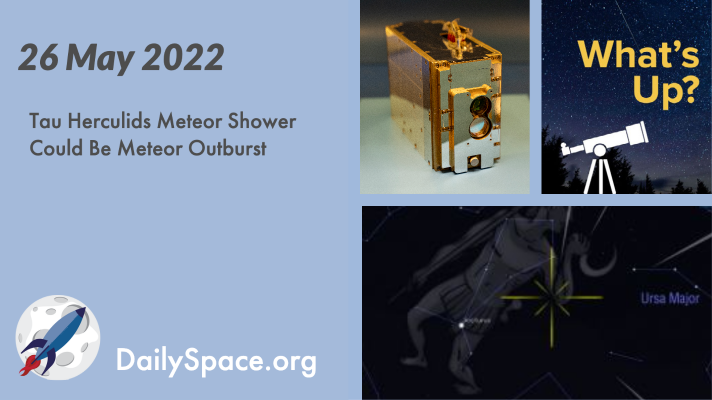
May 27, 2022 | Climate Change, Comets, Cosmology, Daily Space, Earth, Guest Interview, JWST, Rockets, Spacecraft, SpaceX
Due to the gravitational pull of Jupiter on the fragments and dust of comet 73P/Schwassmann-Wachmann, Earth’s orbit may be moving through a dense portion of the comet’s trail on May 31. This alignment could result in an unusually spectacular meteor outburst, and we’ll interview astronomer Pierre Martin about this possible event. Plus, a SpaceX launch that wasn’t Starlink, a new solar sail, and JWST.
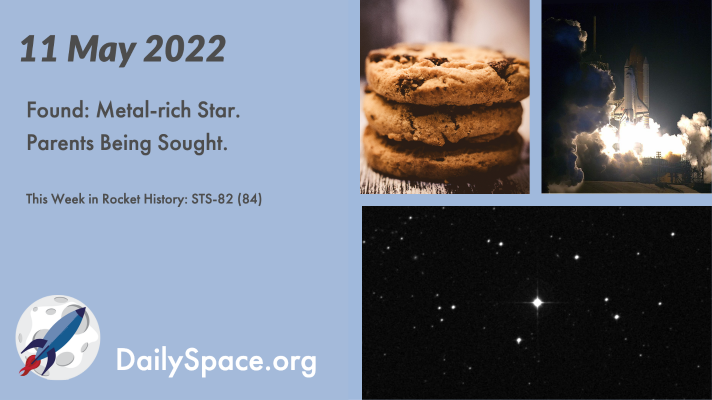
May 12, 2022 | Daily Space, Earth, JWST, Mars, Physics, Random Space Fact, Science, Space History, Spacecraft, Stars, The Sun
A ninth-magnitude star in our neighborhood of the Milky Way has been found to contain 65 different elements, including large proportions of heavier elements like gold. This star required either a supernova or a neutron star merger to form. Plus, another solar flare, a strong marsquake, cosmic rays, cookies, and this week in rocket history, we look back at STS-84.
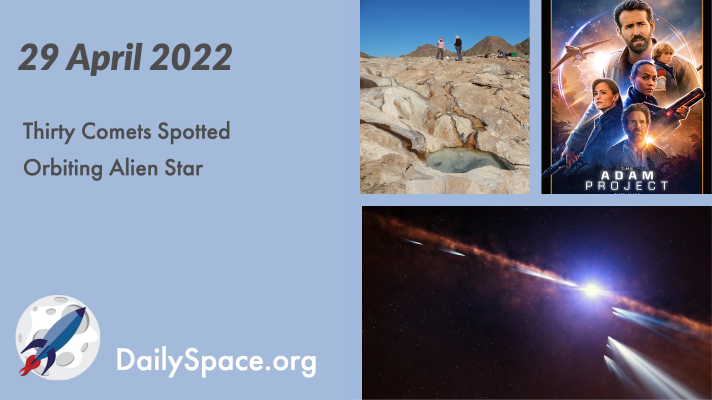
May 2, 2022 | Asteroids, Astrobiology, Comets, Daily Space, Earth, Exoplanets, JWST, Moon, Our Solar System, Review, Rockets, Space China
Using data from TESS, a new paper presents evidence for the discovery of thirty potential comets orbiting in the Beta Pictoris system. Plus, astrobiology research, water on the Moon, solar system formation, and a review of “The Adam Project” starring Ryan Reynolds.
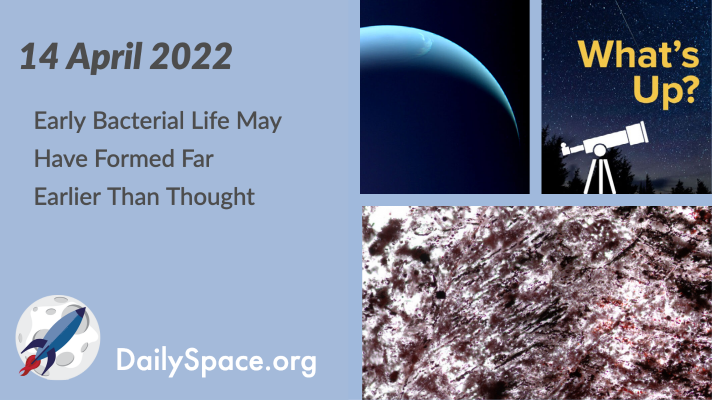
Apr 15, 2022 | Asteroids, Astrobiology, Comets, Crewed Space, Daily Space, Earth, Galaxies, JWST, Lucy, Mars, Mercury, Moon, Neptune, Saturn, Sky Watching, Stars, Supermassive Black Holes, Venus
An analysis of microscopic features in rocks from the Nuvvuagittuq Supracrustal Belt in Quebec, Canada, which date back between 3.75 and 4.28 billion years, finds evidence of possible microbial life. Plus, a supermassive black hole precursor, temperatures on Neptune, check-ins with various spacecraft, and our weekly What’s Up segment.
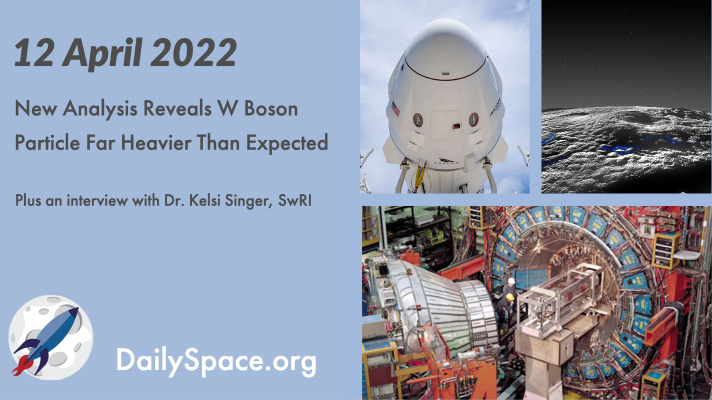
Apr 13, 2022 | Cosmology, Crewed Space, Daily Space, Earth, Galaxies, Guest Interview, JWST, Physics, Pluto & Charon, Rockets, SpaceX
Despite being shut down a decade ago, the Collider Detector at Fermilab provided enormous amounts of data, some of which have recently been re-analyzed, leading to the discovery that the W boson is actually more massive than calculations and predictions expected. Plus, another JWST update, the newest most distant galaxy, gravitational waves, and an interview with Dr. Kelsi Singer about cryovolcanoes on Pluto.
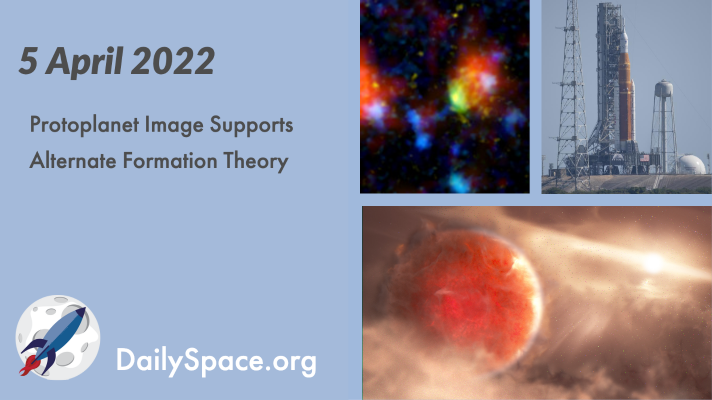
Apr 6, 2022 | Active Galaxies, Artemis, Crewed Space, Daily Space, Exoplanets, Galaxies, Jupiter, JWST, Rocket Lab, Rockets, Spacecraft, SpaceX, Stars
In a joint discovery announced by the Subaru and Hubble telescopes, researchers have captured images of a gas giant protoplanet whose distant formation supports the disk instability theory. Plus, galaxies, more galaxies, a couple of rocket launches, and updates on JWST and SLS.








 We record most shows live, on Twitch. Follow us today to get alerts when we go live.
We record most shows live, on Twitch. Follow us today to get alerts when we go live.